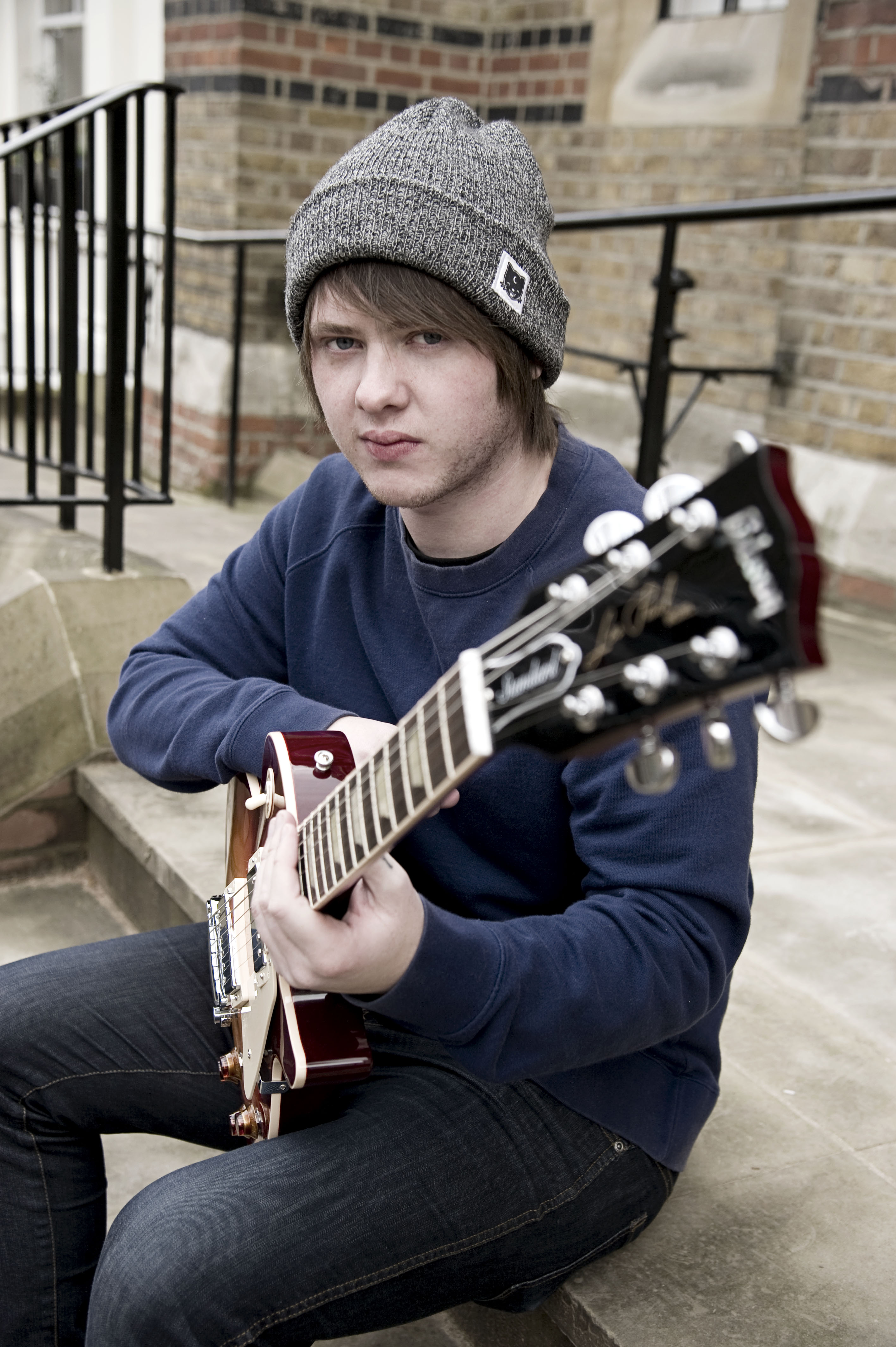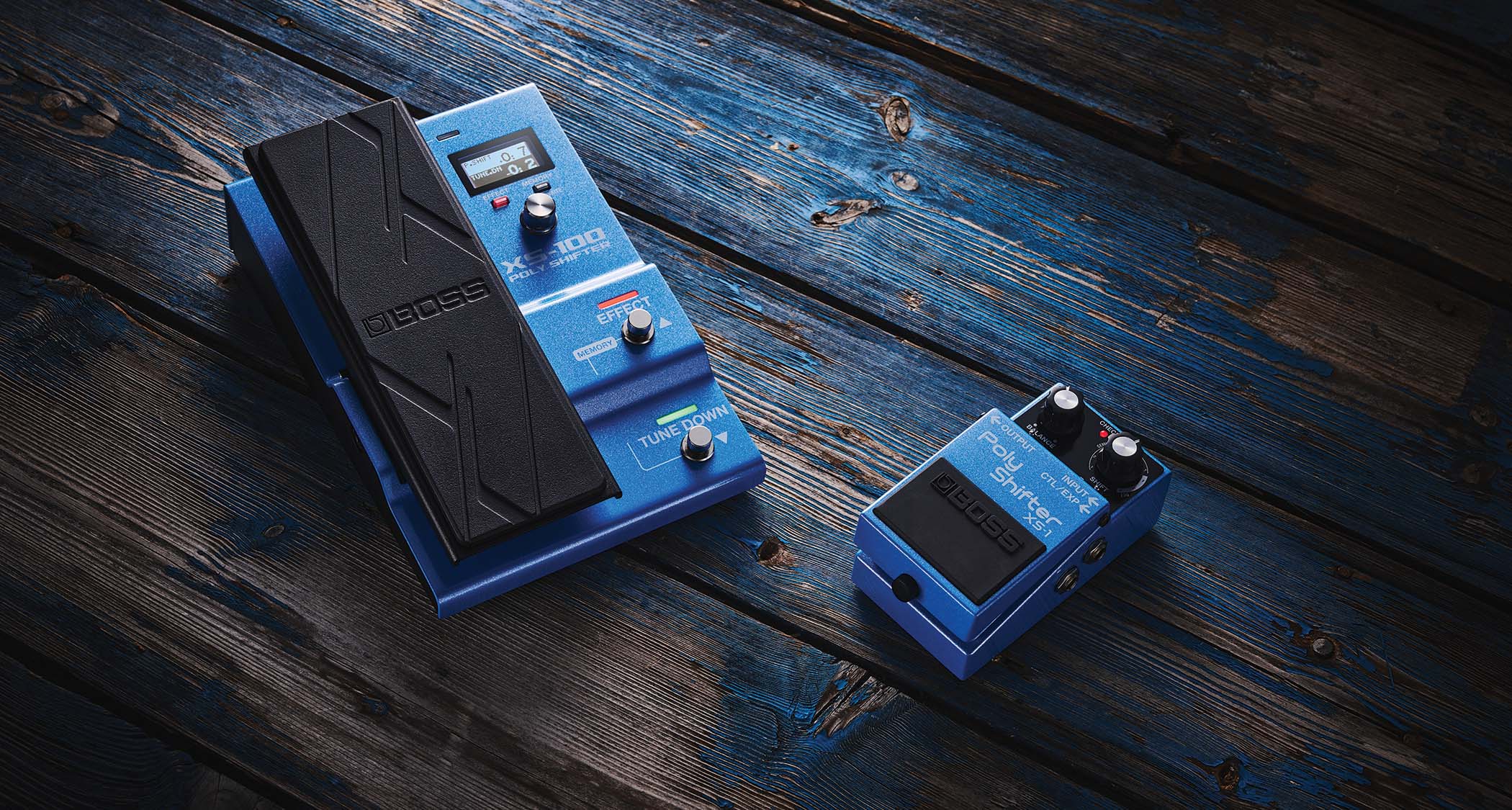
He’s the guitarist for one of England’s most dangerous metalcore bands. But what Guitar World readers really want to know is …
I’m really excited to hear your new album, Sempiternal. What can you tell us about it? Will there be more solos on it than on your last album [2010’s There Is a Hell, Believe Me I’ve Seen It. There Is a Heaven, Let’s Keep It a Secret]? — Gernot Musker
We have a new member in the band, [keyboardist] Jordan Fish, and he made it easy for me to write with him. Because he’s doing a lot of digital stuff, like keyboard parts and making beats, I was able to do more experimental, ambient-sounding parts, using effects in verses. I liked that I didn’t have to play the main rhythm riff all the time, because he did it on the keys. Overall, there’s a lot more twiddly things, but not necessarily solos. I play little bits, but nothing like a classic-rock solo.
I can’t seem to find an answer to why guitarist Jona Weinhofen left the band. Can you set the record straight for your fans? — Azrul Aiman Jinih Matrin
I can’t. Sorry. We’re not allowed to comment on it for legal reasons, so that’s probably why you can’t find an answer.
I have noticed your sound has changed a lot since you recorded Suicide Season [BMTH’s 2008 breakthrough album]. What kind of amp setup do you use for recording now? — Jessica-Lyn Saunders
I use a Marshall JCM 800 and a Marshall speaker cabinet. My main overdrive pedal on the CD is a Klon Centaur, and that’s the core of my sound. I don’t use that pedal live, though. At concerts, I use a Fulltone OCD Overdrive, because the Klon is so hard to get a hold of. The one I used belonged to the studio, but the company has stopped making them. They’re worth about £700 [$1,062] on eBay. The OCD is closest I can find to the Klon.
All the latest guitar news, interviews, lessons, reviews, deals and more, direct to your inbox!
I fell in love with your First Act Custom Sheena guitar the moment I saw it. You never seem to play it anymore. You’ve switched to Les Paul Standards at live shows. Why did you change it up? — Mitch
It’s because I started working with Gibson. They were cool enough to give me some guitars, so I started playing them live. I’ve still got my First Act Sheena, though, and I played it on some of the songs on the new album. My main guitars in the studio were a Les Paul Standard, the First Act Sheena and a semihollow Rickenbacker that worked great for clean sounds.
Onstage, I’m using a Les Paul Standard and a Les Paul Supreme. The songs I wrote on the Sheena sound great on the Les Paul, because I use the same pickup in each guitar: a Bare Knuckle Warpig. I love the fit of the Les Paul, as well as the thickness of the neck and the overall weight of the guitar. I use a really thick set of strings [a custom .080-gauge set from Ernie Ball], so the Les Paul’s higher frets help with that.
Why do you use such massive guitar-string gauges? — Eric Bauer
I was playing normal strings for ages. We tune low, to C standard or drop-As, so I started using a .070 on the lowest string. When I got the First Act Sheena, they drilled the bridge so I could fit an .080-gauge bass string in there, and I started using that. Then Ernie Ball was cool enough to make me custom .080-gauge guitar strings, and I’ve been using them ever since. Since we tune so low, there is a noticeable difference in the sound of heavier gauge strings as compared to normal ones. I play a lot of single-string riffs, so the heavier strings keep it sounding solid.
When you’re playing live, what is your first and last activity before and after you hit the stage? — Paulina
I usually just put my stinky show clothes on and get offended by how bad they smell, and then go onstage. And then I change out of them as fast as I can after.
What do you keep on your pedal board, and what pedal would you say is essential to your overall sound? — Eliot Day
The OCD Overdrive I mentioned before is the most essential, since it adds to my distortion. My pedal board also contains a Boss NS-2 Noise Suppressor, so it sounds pretty tight live. And if ever I do any leads, I use a Boss DD-7 Digital Delay and a Boss RV-5 Digital Reverb. Those have been my go-to pedals for leads since Suicide Season. They’re really good pedals; they might never break. They always work for me, so I’ve stuck with them. I have a couple Electro-Harmonix pedals, too, but I mostly just use the Boss ones.
I’ve been trying to get faster at shredding for solos, but I just can’t get it. Do you have any tips? — Robert Maros
I’m not the best shredder in the world. I’d say to start slow and learn your basic scales and learn how to alternate-pick perfectly. Once your fingers know where they’re going, you don’t have to think about it. Then it’s muscle memory. Just take it slow.
Why don’t you play shred solos and leads anymore, like on [2006’s] Count Your Blessings — Mark Castelan
I think the sound of the band has progressed. Shredding is amazing if it suits the group, but if I did a lot of sweeping on our current songs, it would probably sound like rubbish or like I was trying to show off. I’m just trying to play what the song needs. If it needs a solo, these days for us it’s probably not going to be a shred solo. It will be a cool melody. I don’t want to show off.
What are some of your hobbies? What do you do for fun? — Rachel Shepard
Basically, I just do nothing and hang out. That’s about it. I watch a lot of TV, specifically the British version of The Office, even though it’s been out a long time. When we’re on tour I tend to do nothing.
If you could choose any guitar player, living or dead, to share a stage with, who would you choose and why? — Tatiana Fritzová
I think it would be cool to have played alongside Gary Moore. He’s my dad’s favorite guitarist, so he took me to see him live once. I remember he was great live. He had only a bassist and a drummer backing him up, but he made it sound huge. I was really interested in how he sounds so big, being just one guy. He always played Les Pauls into Marshalls and made them sound amazing.
My favorite songs of his are “Still Got the Blues” and “Parisienne Walkways,” which are just the typical ones but I love the melodies in them. He’s not shredding or going mental. He’s like David Gilmour in that he doesn’t have to play fast to be good. When Gary Moore died, my dad texted me early in the morning about it. We had wanted to see him again, but we can’t now. He was proper good.
Do you ever feel uninspired, like you’ve hit the wall when trying to write songs? What do you do to get yourself out of a creative rut? — Jordan Mafi
I just take a break. Also, for the last couple of years, I hardly listen to metal music, and that’s brought my songwriting a long way. When you translate something from another genre into your writing, it works out pretty well. I listen to [indie-rock] bands like Sigur Rós and Bon Iver. With those bands, I like how their music can sound bigger when it’s not heavy. With our music, a soundscape sounds better to me than doing a typical breakdown or trying to do the heaviest thing you’ve heard.
You can bring more emotion into the song that way. For instance, the ending of “Hospital for Souls” on the new CD is inspired by post-rock, just in the way the guitar part builds and builds. It never kicks into anything different, but we add more instruments and more layers. It sounds really dramatic and you can feel it.
How do I nail the sweep picking in “Pray for Plagues”? It’s driving me crazy! — Mitch Windeatt
Like with the question about shredding, once you can play it slow, you’ll be able to play it to speed. Learn the shape you’re sweeping first, then learn the notes. You’re not just going down random notes; you’re going down a D minor scale. So once you know what notes make a D minor sweeping shape, it makes everything so much easier. Once your learn the shapes, your brain doesn’t think about it as hard.
What is the last thing you bought? Like, literally. A sandwich? A record? Sunscreen? — Nat Rice
Right now, I’m in South Africa. The last thing I bought was a Nando, which is grilled chicken with spicy sauces on it. It’s originally from South Africa. We’ve been doing a lot since we’ve been in South Africa. We went on safari. We hiked up a huge mountain. We’ve done every tourist thing you can do. We went diving with great white sharks in a cage, which was pretty cool. When we did that, we got in a boat and went miles out to sea. Once the sharks turned up, I would get in a cage and look at them. It was pretty scary, but it’s something I wanted to do for years. When my friend was in the cage, the shark came up and tried to chew the bars.
You have played a ton of shows. What would you say has been your best onstage experience? And what was the worst or most embarrassing? — Uriel Hernandez
The best was we played in the Alexandra Palace in England last year. We had taken a year off, so we were worried about whether people would still be into our music. We ended up playing for 10,000 kids, and it was great. My most embarrassing moment was playing Australia’s Soundwave Festival just this past March. I was supposed to play a solo on the song “Blessed with a Curse,” but just before I was supposed to start, our singer, Oli [Sykes], announced, “Everybody, give it up for Lee Malia!” I panicked and forgot to play it. I literally turned away in shame. I didn’t know what to do. It was the most embarrassed I’ve been in my life.
